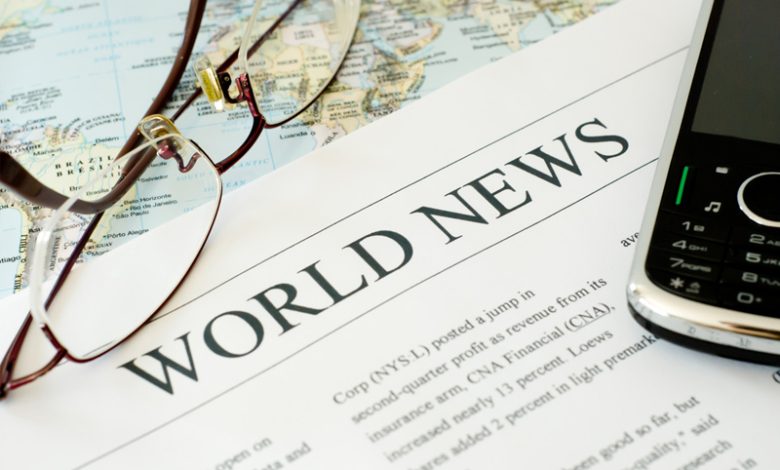
Analysis: Ukraine’s Zelenskiy Heads to the US with ‘Victory Plan’ at a Perilous Moment
By Tom Balmforth
KYIV – President Volodymyr Zelenskiy is set to visit the United States this week to present a "victory plan" to key allies amid the ongoing conflict with Russia. His aim is to sway White House policy regarding Ukraine’s situation, regardless of the outcome of the upcoming U.S. elections in November.
Zelenskiy plans to discuss his strategy with President Joe Biden and his potential successors, Kamala Harris and Donald Trump, during his visit, which includes a speech at the U.N. General Assembly on Tuesday.
The Ukrainian leader believes that support from Western allies could significantly impact Moscow, potentially exerting psychological pressure on Russian President Vladimir Putin to pursue a diplomatic resolution to the conflict. "The Victory Plan envisages quick and concrete steps by our strategic partners – from now until the end of December," Zelenskiy told reporters recently.
The plan is designed to serve as a "bridge" to a subsequent peace summit led by Ukraine, to which Kyiv hopes to invite Russia later this year. Zelenskiy has reiterated that there is no real alternative to peace, rejecting any notion of a temporary halt to hostilities that would merely delay Russian aggression.
However, the positions of the two sides remain starkly opposed. Zelenskiy seeks Ukraine’s integration into NATO and the European Union and the removal of Russian forces from all Ukrainian territory, believing these goals can be achieved through diplomatic means. In contrast, Putin asserts that peace talks can commence only if Ukraine relinquishes territories in the east and south and abandons its NATO membership aspirations.
Zelenskiy’s visit occurs at a critical time for Ukraine, particularly with the prospect of a Trump presidency, which may lead to a re-evaluation of U.S. support that is vital for Ukraine’s military and financial needs. In a recent debate, Trump was noncommittal about his stance on Ukraine defeating Russia and indicated he would aim to resolve the conflict if he were elected.
As the election approaches, Ukraine has demonstrated resilience, executing a daring operation in Russia’s Kursk region and showcasing advancements in military technology, including new drones and ballistic weapons. Notably, one drone strike led to a significant explosion at a Russian ammunition depot last Wednesday.
In response, Russia has intensified its drone and missile attacks, acquired Iranian ballistic missiles, and expanded its military forces.
U.S. National Security Adviser Jake Sullivan has expressed Biden’s willingness to engage in discussions about Zelenskiy’s "comprehensive strategy for success in this war." The Ukrainian president has emphasized that his plan’s effectiveness hinges mainly on U.S. decisions, not those of Putin.
Zelenskiy indicated that his plan involves critical points related to establishing Ukraine’s role in global security, military operations, and economic support. Military analysts suggest that he may advocate for long-term assurances of aid extending into 2025 and a statement from the U.S. that guarantees continued support regardless of future administrations.
One significant request from Zelenskiy is to obtain authorization for long-range strikes within Russia. However, Washington has cautioned that such a move could escalate U.S. involvement in the conflict.
Amid these dynamics, Ukraine holds a tenuous foothold in the Kursk region, which could be used strategically in negotiations, although facing the challenge of maintaining control against a larger Russian force.
In addition, Russia is moving closer to capturing Pokrovsk, a key logistical hub that could disrupt Ukrainian supply lines and enhance Russian offensive capabilities. Analysts believe Moscow aims to secure Pokrovsk by the end of the year, which could exert additional pressure on Kyiv to consider peace talks on unfavorable terms.
Ukraine looks to facilitate a second international summit for peace later this year, which will also include an invitation for Russia, correcting the absence of Russian representatives from the first summit held in Switzerland. Zelenskiy criticizes alternative peace proposals as inadequate and insists that his approach is the only feasible path forward.
Ukraine is preparing for one of the most challenging winters of the conflict, as Russian attacks have severely damaged energy infrastructure. The government is also facing economic difficulties and has planned wartime tax increases to address a substantial funding gap for its military.
Polls reveal a mixed sentiment among Ukrainians; some are now open to territorial concessions for a ceasefire. Still, many envision such concessions as temporary rather than permanent.
Key to any peace agreement, according to analysts, will be strong security guarantees, ideally including NATO membership. Despite the challenges, Ukrainians remain hopeful for a future that includes integration into the European Union and robust security assurances.
 GOOGL
GOOGL  META
META 

